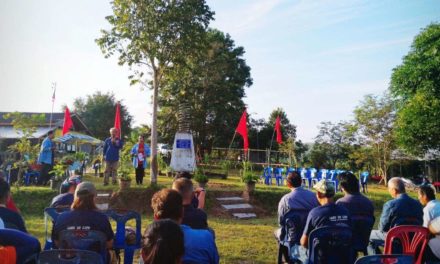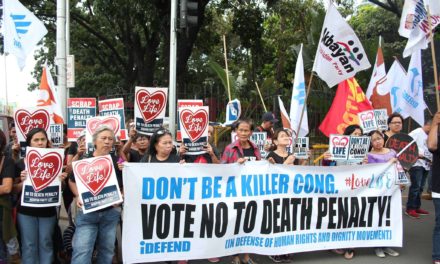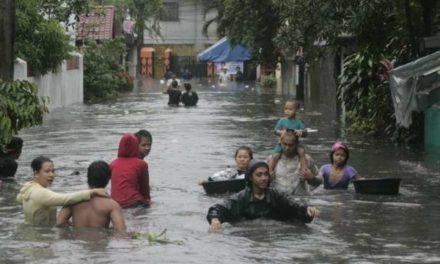by Jenina Joy Chavez, Julie delos Reyes, Herbert Docena, Aya Fabros, Mary Lou Malig, Mary Ann Manahan, Cathy Ordona, Qiqo Punzalan Simbol, Joseph Purugganan, Lourdes Torres and Walden Bello/
Focus on the Global South Philippines Team
24 June 2009
On June 2, 2009, the House of Representatives outdid ignoble acts of the past by ramming through House Resolution 1109,the Resolution that seeks to convene Congress into a Constituent Assembly that will consider amendments or revisions to the 1987 Constitution. Aided by sheer numbers, the House majority not only successfully abbreviated the debate extremely crucial in such an important issue as tinkering with the basic law of the land, they also managed to strip the notorious resolution of dignity by voting viva voce.
What is it in the Constitution that politicians find so objectionable that barely a decade after it was promulgated, the administration of then-President Ramos launched a campaign to revise it, even funding a Supreme Court-rejected ‘people’s initiative’ campaign through the Pirma (People’s Initiative for Reforms, Modernization and Action)? The campaign to change (revise or amend) the Constitution persisted during Estrada’s short-lived stay in office, and has blossomed during Arroyo’s over-extended presidency.
Ramos had a set of proposed reforms that included a shift from a presidential form of government to a parliamentary system, and scrapping land ownership restrictions for foreigners. In 2006, an even more extensive list of proposals emanated from the House Committee on Constitutional Amendments. It contains both changes proposed by Ramos, but also includes the shift to a federal system, the extension of the terms of office of local elective officials from three to five years, and the removal of nationality restrictions on sectors like advertising etc. (See Matrix prepared by PCIJ)
Unfortunately, these proposed changes have not been thoroughly and publicly discussed, that one wonders who the motive forces behind them are. It also convolutes understanding when those with earnest desire to improve the Constitution – e.g. to increase representation by marginalized sectors, to cure certain weaknesses in the provisions on the declaration of martial law and the powers of the president, or simply to clean it up for language and length – fail to build constituencies for their ideas, and get mixed-up with the underlying highly-charged and politicized incentive to change the Constitution.
The main debate centers on the timing and the mode of the change that will be effected. Many say that the Constitution needs revising to keep up with the times, but they say ‘not now, not yet’. A prime consideration is the apprehension that any change to the Constitution now will just be used by the unscrupulous Arroyo and her cohorts to perpetuate themselves in power. This is valid fear as Arroyo is notorious for reneging on her word, and for blatantly messing up most of the country’s institutions (to wit: the election scandal, brinkmanship on civil rights, commandeering Congress, abuse of appointive powers, abuse of pardoning powers, the list goes on).
How and who will change the Constitution is also a big debate. We do not trust Congress – the same people who have slithered their way to power through patronage and corruption – with a valuable document like the Constitution. Not when they managed to water down the agrarian reform extension law; and not when they are preoccupied with a right of reply bill ostensibly to protect themselves from being shamed by their own actions. Not a Congress that would shout aye without the courage of explaining why a Constitutional change is necessary, and what changes they mean to make. And not a House of Representatives that is not beyond declaring itself Congress and convening as a Constituent Assembly without the House of Senate. Many would say a Constitutional Convention is better, when delegates are elected for the express purpose of amending the Constitution. Another mode — people’s initiative, where amendments come from the people (or at least 12% of total registered voters, 12% in every legislative district) themselves — is rarely discussed these days after the PIRMA experience.
Making the mode of Chacha the hot issue of the day could distract us from more essential questions that we need to focus on. Instead of squabbling about who should revise the Constitution, it should first be made clear what specific amendments one wants to push.
Beyond the when, who and how, there are basic questions that we must go back to: is the 1987 Constitution inadequate? Has it failed us that we need to change it? If so, what changes do we want to make, and should not these changes be the main consideration for any Chacha or ConAss, rather than the Chacha or ConAss per se? Otherwise, what assurance do we have that when we open the Constitution up for amendments yet unidentified, they will not touch the provisions that we should fight to preserve?
Imperfect as the 1987 Constitution might be, it remains the most progressive Constitution we’ve had, and reminds us of the high ideals and aspirations that buoyed the national pride after the people booted out a dictator. It represents a break away from the old, of starting fresh. While coming from mixed backgrounds and political inclinations, the Commissioners who crafted the 1987 Constitution were of high probity and integrity – traits that intervening history has taught us to be wary of ascribing to any body now. It was born of a historical moment when national unity was high, a moment far from the fractiousness of today. Only one in three Filipinos support charter change today, according to surveys, a far cry from the 76% mandate the Constitution got in 1987.
And why not? The 1987 Constitution has a strong declaration on peace, freedom, independent foreign policy, and self-reliant and independent national economy. It has an extensive and progressive Bill of Rights. It clips the powers of the Presidency and strengthens the checks and balances in Government. It has strong language on social justice, equity and redistribution, and reserves preferential treatment to Filipino labor, business and industry, in specific areas like land ownership, exploitation of natural resources, and certain economic sectors.
The 1987 Constitution yet to realize its full potential, as significant mandates have yet to be given enabling legislations or substantive action. The list is long – right to information of public concern, industrialization and full employment based on sound agricultural development and agrarian reform, duty of the State to promote distributive justice and intervene when the common good demands, a progressive system of taxation, equitably diffusing wealth and political power for the common good, urban land reform and housing, the right of people and their organizations to effective and reasonable participation, the anti-political dynasty provision, among others.
Why not fight to preserve these progressive provisions? Why not give life and substance to the many Constitutional mandates we have yet to fully enjoy? The failings of our economy and our political system are not because of the Constitution. It is our politics that has failed the Constitution.
We are told that it is precisely the progressive aspects (esp. the economic provisions) of the Constitution that will be changed, supposedly because they are fetters to our economic development. But it is precisely such restrictions that made possible economic development in a number of Asian countries, like South Korea, and in other cases, such as China, hey have not prevented the massive entry of foreign investment. Moreover, the same people are not complaining that we still do not have access to official information, or that the people have yet to be given a chance to participate meaningfully in economic and political decision-making. How is it that restrictions on foreigners owning lands hold us back, and not the continued entrenchment of the same political families election after election after election?
Beyond Arroyo – and we emphasize that we don’t want her to extend a second beyond her term, there are other forces behind the Chacha. It is not speculation that foreign chambers of commerce and some neo-liberal entities are involved, and their interests intersect with greedy political forces. They are so focused on the act of changing the Constitution that they do not bother to clearly articulate what is wrong with what we have now and what they propose to replace it with. The reason is simple. The changes they envision, now or even later, are not for us ordinary Filipinos but for those who want to use the opening of Chacha to further insinuate their interests into our system.





![[IN PHOTOS] In Defense of Human Rights and Dignity Movement (iDEFEND) Mobilization on the fourth State of the Nation Address (SONA) of Ferdinand Marcos, Jr.](https://focusweb.org/wp-content/uploads/2025/07/1-150x150.jpg)



